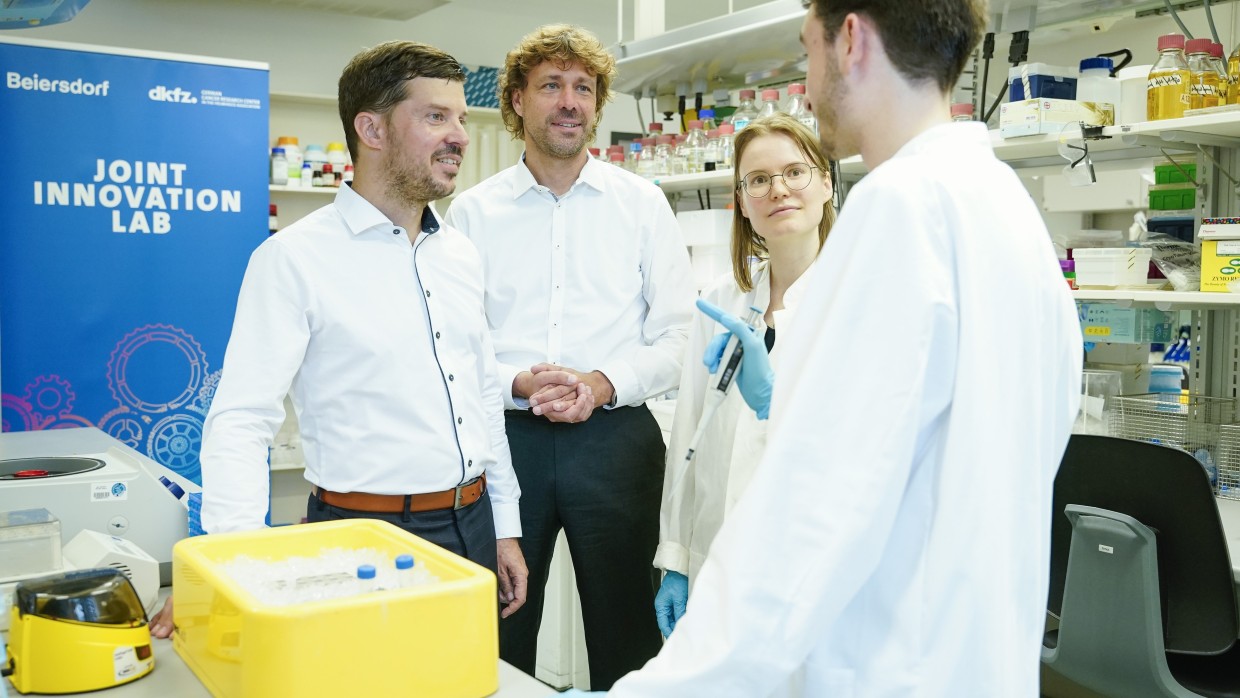News
News
Skin Rejuvenation for Cancer Prevention
DKFZ and Beiersdorf Are Investigating This Connection in a Joint Project
Beiersdorf and the German Cancer Research Center (DKFZ) are jointly researching solutions to prevent skin cancer. For this purpose, the partners have founded the Joint Innovation Lab. The research will focus on the so-called "epigenetic clock" of skin cells. According to Beiersdorf, the aim is to turn back biological ageing and thus also reduce the risk of skin cancer.
The Molecular Clock Indicates Our Current Age
The cells of our skin – like all other cells of the body – contain a form of molecular clock that indicates our current age. The age can be derived from the so-called epigenetic markers of the genetic material. The small chemical tags have a major impact, deciding which genes in the cells are active and which are silenced. As we age, the pattern of epigenetic markers changes and these changes are associated with certain disease risks, including an increased risk of cancer. How these age-related epigenetic changes affect cellular processes, what signs of aging are associated with them, and how the epigenetic clock in skin cells can possibly be turned back, these are the topics the scientists at the Joint Innovation Lab reportedly are investigating since July.
Joint Research Activities Has Expanded Knowledge of Epigenetics
DKFZ and Beiersdorf have a long-standing research collaboration. They have already been investigating the epigenetics of skin cells since 2008, for example with the aim of better understanding the effects of UV radiation. According to Beiersdorf, knowledge of the epigenetic clock has expanded enormously since the collaboration began. Various studies have already succeeded in turning back the epigenetic clock and thus rejuvenating different tissues.
Based in Heidelberg, the Joint Innovation Lab has been established initially on a four-year basis. The two partners will invest a total of 4.8 million euros in the project, equating to an annual contribution of 600,000 euros for each institution.
Source: Beiersdorf

